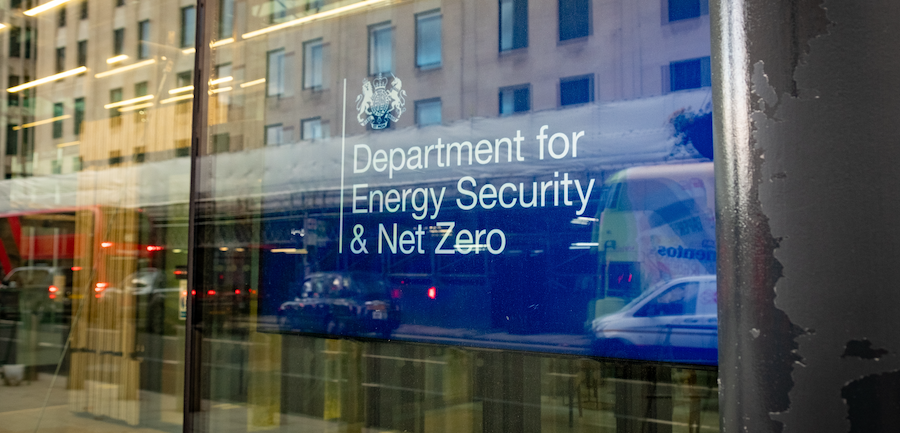
It’s all change at the Department for Energy Security and Net Zero. But what does it mean for the industry?
In the UK energy industry, the government significantly influences the direction of travel. As a result, when there’s a new person in charge, it’s big news and everyone wants to know how they’ll make their mark.
In September 2023, the Prime Minister appointed a new Secretary of State at the Department for Energy Security and Net Zero (DESNZ) as part of a mini-reshuffle. In this article, we’ll tell you more about the new face at the helm of UK energy policy and what it might mean for the industry.
Introducing Claire Coutinho
The new Energy Secretary is Claire Coutinho, replacing Grant Shapps, who has moved to the Ministry of Defence. She is a solid ally of Rishi Sunak and is seen as a rising star in the Conservative Party. At 39 years old, she is also currently the youngest minister in the cabinet.
If you’ve been following developments in this government department, you’ll know that people don’t spend too long in the Secretary of State role. In fact, Coutinho is the sixth person to take charge of energy policy since 2020. The others were:
- Andrea Leadsom – 2019-2020
- Alok Sharma – 2020-2021
- Kwasi Kwarteng – 2021-2022
- Jacob Rees-Mogg – 2022
- Grant Shapps – 2022-2023
The energy brief has also moved between government departments. It previously came under the Department for Business, Energy and Industrial Strategy (BEIS). However, this department was dissolved in February 2023, with the energy function moving to a new department – DESNZ.
A full in-tray
It’s fair to say Claire Coutinho is going to have a busy start to her tenure at DESNZ. Some observers have called it a ‘baptism of fire’, and they’re probably right. Here are three challenges Coutinho will face as she gets to grips with her new role:
- Security – Britain needs to produce more of its own energy to avoid relying on volatile energy markets and hostile powers such as Russia
- Sustainability – The UK is working towards ambitious carbon reduction targets, but it’s unclear whether we’re on course to hit them. The new Energy Secretary will need to make tough decisions to get back on track
- Affordability – Only last year, the country experienced an unprecedented energy crisis with bills at an all-time high, and we’re not out of the woods yet. How can we avoid a similar occurrence this winter?
Problems in the party
Another problem for Claire Coutinho is that there’s no consensus in the Conservative Party on the direction in which to move. The party is severely divided on the merits of the government’s net-zero policies, with Coutinho already having to make compromises to appease each faction.
Already, Coutinho is considering removing a moratorium on onshore wind farm construction, fearing a defeat in Parliament by Tory rebels. Her predecessor, Alok Sharma, has tabled an amendment seeking to remove the effective ban on onshore wind farms halted by individual local objections. She is also watering down a proposed ban on new oil boilers due to a rebellion from rural conservatives.
If that wasn’t enough, the government’s flagship energy bill has become a focal point of debate on environmental policy, with some members wanting it to be stricter and others demanding it be dropped altogether. Jacob Rees-Mogg – another predecessor in the Energy Secretary role – has said publicly that he would like Coutinho to prioritise affordable energy rather than environmental considerations.
Heat pump backlash
Claire Coutinho is also facing reprisals from consumers and suppliers over her department promoting the use of heat pumps in households. Currently, it costs around £13,000 to install heat pumps in a home, although government grants can reduce this to £5,000.
Cadent – the UK’s largest gas network operator – suggests that hydrogen is a cheaper and simpler alternative to heat pumps. This is because tests indicate that hydrogen is compatible with current and new gas pipelines with minimal changes needed. Cadent is also investing in replacing metal gas pipes with hydrogen-compatible plastic pipes, subject to Health and Safety Executive approval.
However, the DESNZ appears to rule out hydrogen as an option and is set on heat pumps above everything else. It recently cancelled a hydrogen pilot scheme in Whitby due to local opposition, while another in Redcar remains uncertain. Can Claire Coutinho chart a course that keeps consumers and the industry happy?
Welcome, Secretary of State
We welcome Claire Coutinho to her new role and wish her well. It’s a difficult job, especially with recent events in the energy industry and the ambitious targets she has to work toward. However, it’s also a high-profile job, and if she can succeed, the sky’s the limit for her career trajectory.
We’ll wait and see what happens.
